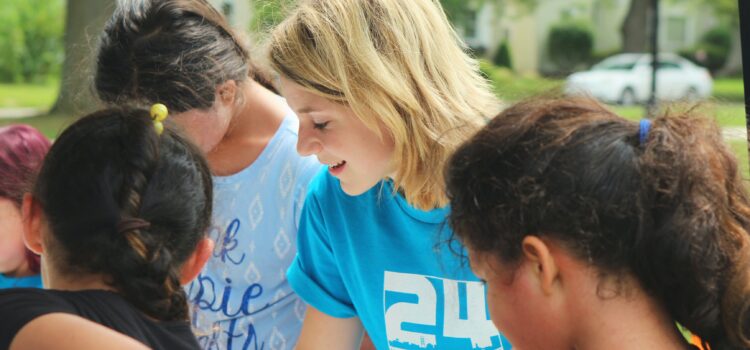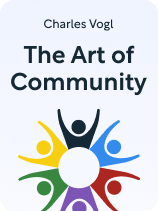

This article is an excerpt from the Shortform book guide to "The Art of Community" by Charles Vogl. Shortform has the world's best summaries and analyses of books you should be reading.
Like this article? Sign up for a free trial here.
How are you helping others grow? Should there be room for advancement in communities?
Although you should prioritize relationships over status, Charles Vogl says it’s natural to want to continue growing as a person and advancing within a community. In The Art of Community, he makes a few recommendations that can help community members make healthy progress.
Continue reading for his recommendations that apply to both offline and online communities.
How to Help Community Members Advance
Do you have an understanding of how you are helping others grow in your community? If not, Vogl has a few pointers.
First, develop a healthier definition of success within your community. This involves recognizing several different levels of success within the community—lower, higher, and highest levels—and bestowing members with progressively greater privileges as they graduate from one level to the next. That way, you don’t have to be the best of the best for your growth to be honored. Vogl also explains that not everyone can or should reach the highest levels of a community—every level is equally important because everyone within the community brings something unique and valuable to the table. Once you find a level that’s comfortable, it’s okay to stay there; you don’t have to keep advancing just for the sake of achievement.
(Shortform note: According to Paul Millerd in The Pathless Path, you can create a healthier definition of success by forgetting about external markers of success like status (or in this case, community rank) and focusing instead on two more important factors: contributing something important to the world and living according to your values. Millerd says defining success in this way is more fulfilling because instead of trying to achieve an arbitrary benchmark, you’re living out a meaningful, dynamic process that brings you recurrent joy. In a community context, these measures of success can be attained by anyone—for example, even brand-new members can appreciate the value of their contributions when they engage in community activities.)
Second, clarify advancement criteria. Vogl says that the best goal a community can have is to expand members’ capacity for care. The newest members of a community might be concerned primarily with developing their own skills and character, but more experienced members concern themselves with helping newer members grow—and members of the highest levels of the community are concerned with promoting the wellbeing of everyone in the world. The more caring you become, the higher the level you can reach. Other qualifications for advancement—like mastery of certain skills—should also be made clear, and members’ qualifications should be appraised before they’re allowed to formally advance.
(Shortform note: Clear advancement criteria and an expanded capacity for care may be especially important in business-oriented communities. Some experts believe that clear advancement criteria help with motivation—when people know how to make progress toward higher strata in a business (or community), they feel more willing and able to pursue that path. Business experts John Mackey and Raj Sisodia also agree that advancement should expand your capacity for care. In Conscious Capitalism, they explain that in corporate settings, it’s OK for people at lower levels (like customers and employees) to be more self-focused, but leaders have to consider everyone’s well-being to make the wisest company decisions.)
Third, Vogl says you should establish an infrastructure that can support growth. This means giving all interested members access to more experienced members who can teach them what they need to know if they’re going to advance to higher levels. Teaching can be formal (like a skills class) or informal (like experienced members sharing wisdom with newer members when they hang out). Vogl explains that this infrastructure should be easy to access—the purpose of a community is to support members’ growth, so if newer members feel that they can’t or don’t know how to learn from more experienced members, they’ll lose interest. Vogl adds that teaching supports the growth of more experienced members, too, because they’ll learn from their mentees.
(Shortform note: In more informal communities, you might allow newer members to self-select their mentors. For example, that’s how Alcoholics Anonymous’ infrastructure is set up—new members simply ask a more experienced member with whom they’ve connected to sponsor, or support, their recovery from alcoholism. In contrast, some more formal communities use mentor-matching, where administrators take into account available mentors’ and mentees’ values and goals and use that information to create mentor-mentee pairs they think will be mutually beneficial.)

———End of Preview———
Like what you just read? Read the rest of the world's best book summary and analysis of Charles Vogl's "The Art of Community" at Shortform.
Here's what you'll find in our full The Art of Community summary:
- The fundamental guidelines all communities should follow
- How to institute a community meeting place and set of customs
- How you can enhance belonging within your community






